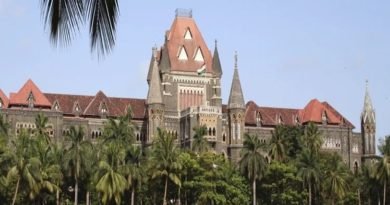Sitaram Yechury: 25 years too late
Indian communism was at the crossroads in 1992 when the world changed. If Yechury, the communist who got it, had been given leadership then, Indian politics may have had a different trajectory
New Delhi, September 13, dmanewsdesk: Sitaram Yechury became the General Secretary of the Communist Party in 2015, after the party had receded to the margins of India’s polity.
That the party retained its presence on the national stage, figured in Opposition confabulations and its leaders were still quoted in the mainstream media outside Kerala and West Bengal was due in large part to the energetic exertions of Yechury, making use of the relationships he had built up as a Rajya Sabha member and as the right-hand man of Harkishan Singh Surjeet, party general secretary from 1992 to 2005.
What if Yechury, rather than Surjeet, had become the general secretary in 1992, in the wake of the collapse of the Soviet Union and the Tiananmen massacre of 1989, and shortly before the first dynastic succession in the Communist world, in North Korea — that is, after the bankruptcy of the traditional Communist worldview had more or less been established beyond doubt?
By Yechury, we mean someone with a relatively open approach to the world that set him apart from the moribund apparatchiks who have become the standard bearers of communism.
A vision devoid of ideological blinkers would reveal , the world as it is, rather than as it ought to be according to communist teachings. You thought the Matrix movie franchise was original, in portraying people who live in a simulated world, with no clue that they are being deluded? Communists got there first.
To suggest that Yechury was capable of seeing reality as it is, and not through a dogmatic prism, might seem to fly in the face of facts.
One, the glowing report he filed about the conditions in Ceaușescu’s Romania. In Yechury’s defence, it must be said that he visited Romania not as a free agent, but as an emissary of the CPI(M), and was under duress to report that four legs were better than two.
Two, Yechury was part of the party establishment that censured, and eventually got rid of, the rising mass leader from West Bengal, Saifuddin Choudhury. Saifuddin perceived the emerging threat to the secular polity from the rise of the Sangh Parivar, in the wake of the demolition of the Babri mosque, and the need for the communists to move away from consistent anti-Congressism in order to combat the common, larger enemy.
When the minority Narasimha Rao government of 1991-96 needed to show its majority and the Congress sought the support of the Left, at least by staging a walk-out that would reduce the opposing vote count, Saifuddin and Somnath Chatterjee were in favour. That was deemed an intolerable compromise with a government that had initiated neoliberal reforms. Yechury went along with his senior comrade Prakash Karat. In the process, a potential rival to party leadership was moved out of the way.
And three, Yechury was against the Karat line of withdrawing support to the Congress-led UPA government over the nuclear deal with the US. However, he went along with the party line, and the party’s MPs voted with the BJP in an unsuccessful attempt to oust Manmohan Singh as prime minister.
Given this history, why entertain the hope he would have made a difference as party leader in 1992?
He had the capacity to interact with fellow human beings on their own terms, rather than purely as representatives of the groups into which Communists tend to sort people. He was an educated, intelligent man, who kept abreast of global developments, and had the training to perceive shifts in the currents of history as they rushed along.
Had he been the top leader with a free hand, he could have appreciated the need to overhaul the party, its goals, strategy and tactics.
In the autumn of the Communist patriarch, EMS Namboodiripad wrote a trenchant critique of Stalin, in the party’s Malayalam newspaper, Deshabhimani.
If developed and extrapolated to the contemporary world, this critique would lead to a total revamp of the Communist party, dumping concepts like democratic centralism, and allowing ideas to compete for acceptance by the wider party, instead of imposing the wisdom of the General Secretary, dressed up as that of the Polit Bureau and the Central Committee, on the party as a whole.
Prior to the Russian revolution, the Russian Communist party had had many factions, intense debates, multiple journals for airing a variety of views and critiques of others’ views. Inner-party democracy was alive and kicking. Russia’s civil war after the revolution put paid to all that.
What originally began as civil war emergency measures became reified as The Party, the model for Communists around the world, including in India.
In strict accordance with the the traditional theory and practice of Communism, the ideal future of humanity is North Korea.
Communists in Kerala originally served as a force for democracy. All other parties bought into the social agenda of democratization championed by the Communists. But the Communist agenda fell short of democratizing gender relations, eradicating caste and modernizing the economy.
In Bengal, the Communists carried out land reforms, but practised patronage politics, rather than democracy.
Communist politics as currently envisaged, has run out of steam. The right moment to forge a new emancipatory imagination had been after the collapse of the Soviet Union. Yechury became the party leader a quarter century too late. Is there someone else to pick up the gauntlet?
Source: moneycontrol




